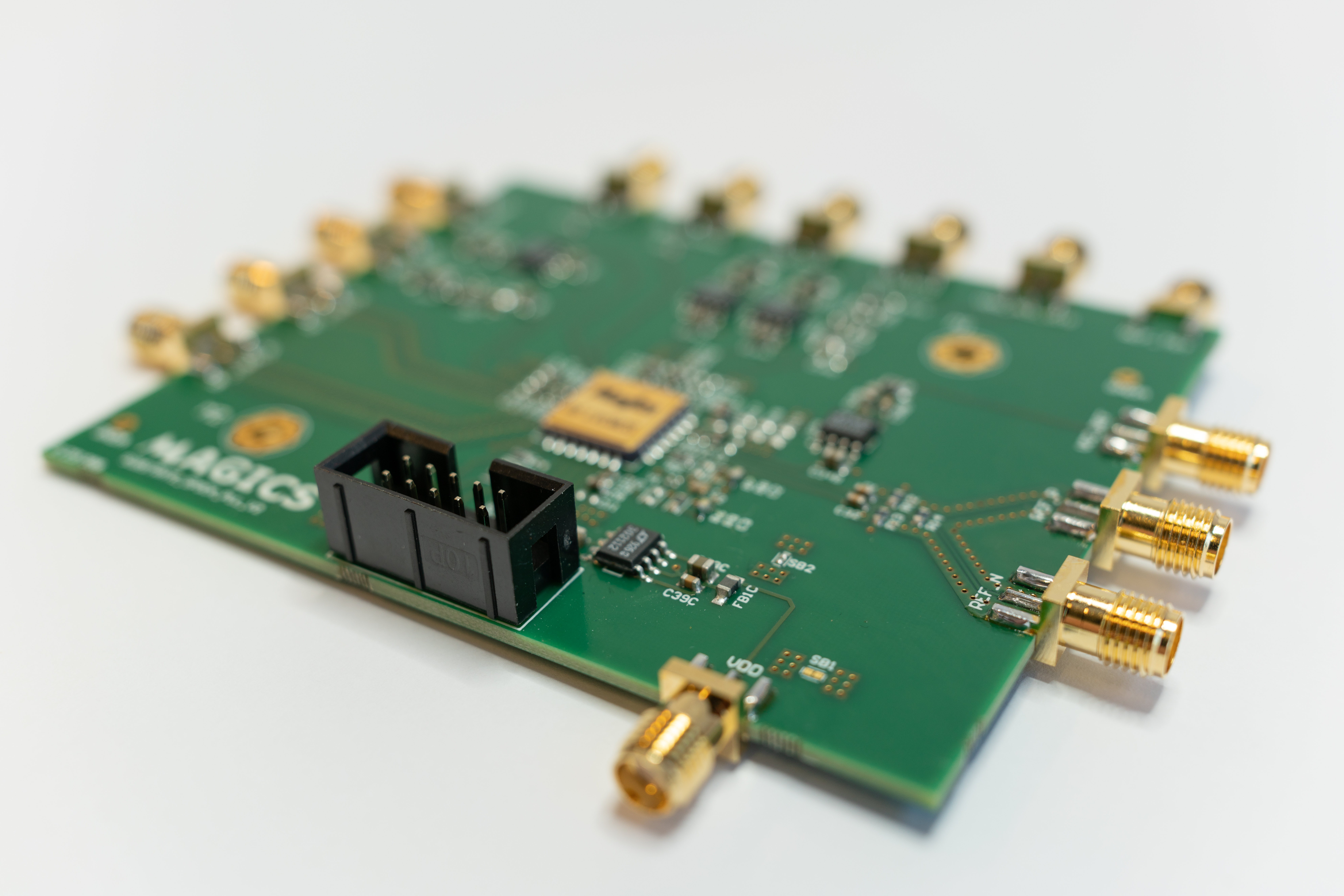MAGICS has revealed its latest radiation resilient chip for use in space exploration and satellites. The new PLL1001 is a frequency generation chip, capable of delivering frequencies ranging from 1 MHz to 3 GHz and created to fulfil applications such as on-board clock generation, serial communication links, clock cleaning and jitter filtering, plus switching power supplies. The chip was developed in collaboration with KU Leuven with the support of the European Space Agency’s ARTES Core Competitiveness Programme.
Weight and physical footprint are key considerations in CubeSats and other astronautical applications, so MAGICS’ success in integrating a VCO (Voltage-Controlled Oscillator), digitally controlled loop filter and charge pump in a single PLL1001 chip represents a significant breakthrough, unlocking board area savings of 50% or more with no compromise to functionality. The chip’s integrated design helps to keep costs down and promises to deliver further efficiencies in qualification and acceptance testing and reduced development times. Employing a fully integrated digital architecture also means that PLL1001 is less vulnerable to the single-event transients that can cause problems for analog loops.
Drawing on its extensive experience of radiation hardening, MAGICS has successfully tested and validated the PLL1001 to withstand Total Ionising Dose (TID) levels over 100 krad and Single Event Upset (SEU) / Single Event Latchup(SEL) sensitivity for LETs up to 62.5 MeV*cm²/mg , preparing the chip for a long life of service in deep space exploration and other harsh environments where regular devices would quickly degrade.
The PLL1001 offers a high degree of flexibility and reconfigurability, with adjustable loop filter coefficients, a tuneable on-chip crystal oscillator and the facility to trade power consumption for noise performance.
“Space is a brutal environment for integrated circuits,” comments MAGICS’ CEO, Jens Verbeeck. “The key to this project was eliminating additional components and integrating everything into a single, rad hardened chip. Our R&D team really embraced the challenge and came up with innovative ways to overcome the obstacles along the way, resulting in a simpler, smaller, cost-effective solution that gives the user a wealth of configuration options.”
MAGICS Instruments NV was established in 2015 by Ying Cao and Jens Verbeeck, spinning out of KU Leuven university and SCK-CEN. At the heart of MAGICS is a shared belief in autonomous machines as the keys to exploring other planets and unlocking sustainable sources of energy and resources on these worlds and on our own. The company is based in Geel, where its R&D team brings together leading experts in the fields of radiation hardening, integrated circuit design and machine learning.
